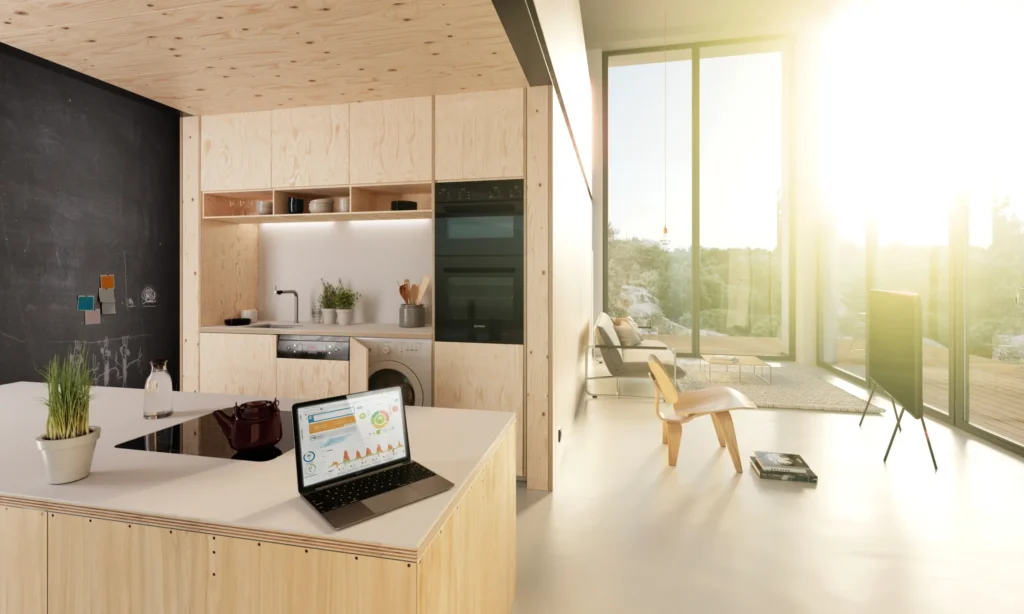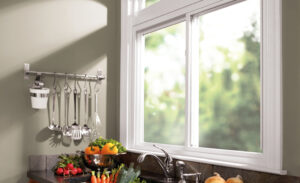Imagine you’re leaving the office after a long day. As you head out, you realize you forgot to turn off the lights in the living room and set the thermostat to “away mode.” But instead of stressing or returning home, you pull out your phone, open an app, and adjust everything with a few taps. On your way home, you get a notification that a package has arrived on your doorstep and another alert that the temperature is dropping, so your smart thermostat has preemptively started warming up the house. When you arrive, the lights are set to a cozy dim, the living room is comfortably warm, and you feel your home has prepared for your arrival. This is the convenience and efficiency offered by a smart home manager.
In recent years, smart home technology has evolved beyond individual smart devices to integrated systems that allow homeowners to manage their homes seamlessly from a single app or platform. From security and energy management to entertainment and appliance control, the smart home manager is revolutionizing how people interact with their living spaces. This article delves into the concept of the smart home manager, exploring its benefits, current market trends, statistics, and critical considerations for anyone looking to make their home smarter.
What is a Smart Home Manager?
A smart home manager is a centralized app or platform that allows homeowners to control various smart devices. It acts as the “brain” of the home, integrating different devices and systems—such as lighting, security, thermostats, appliances, and entertainment—so they work together seamlessly. Instead of managing each smart device individually, the smart home manager allows users to automate routines, monitor usage, and control multiple functions from one interface.
Popular smart home managers include apps from companies like Google (Google Home), Amazon (Alexa), and Apple (HomeKit), dedicated systems like Samsung’s SmartThings, and proprietary solutions from smart home service providers. These platforms often integrate with various devices, creating an ecosystem where everything from door locks to washing machines can be managed efficiently.
The Rise of Smart Home Technology: Statistics and Market Growth
The adoption of smart home technology has surged in recent years, and the numbers reflect its growing popularity:
- Market Growth: According to Statista, the global smart home market is expected to reach $205 billion by 2026, growing at a compound annual growth rate (CAGR) of 25% from 2021 to 2026. This rapid growth is driven by increased consumer interest in home automation, energy management, and security solutions.
- Device Popularity: A survey by the Consumer Technology Association (CTA) revealed that nearly 69% of U.S. households owned at least one smart home device as of 2023, with smart speakers, security cameras, and thermostats being among the most popular products.
- Energy Savings: A study by the American Council for an Energy-Efficient Economy (ACEEE) found that homes using smart thermostats saved an average of 10-12% on heating and 15% on cooling costs, translating to annual savings of approximately $131 for an average household.
- Security Impact: According to SafeWise, homes with intelligent security systems are up to three times less likely to experience break-ins than homes without such technology. Smart home managers provide enhanced security and peace of mind with real-time notifications, remote monitoring, and automated locks.
These statistics illustrate the growing demand for smart home technology and highlight the benefits of integrating a smart home manager to unify all these devices.
Key Benefits of a Smart Home Manager
1. Enhanced Convenience
One of the primary benefits of a smart home manager is convenience. With all smart devices accessible from a single interface, homeowners can adjust their settings, monitor activity, and even automate tasks. For example, a “goodnight” routine can be programmed to lock all doors, turn off lights, lower the thermostat, and arm the security system with one command or at a scheduled time.
2. Improved Energy Efficiency and Cost Savings
Smart home managers offer significant energy savings by allowing users to optimize their electricity, heating, and cooling usage. Smart thermostats, for instance, can learn the homeowner’s routine and adjust temperatures accordingly. Energy Star reports that certified smart thermostats can save about 8% on energy bills, adding up over time.
Lighting is another area where energy savings are significant. A study by Lutron Electronics showed that automated lighting systems could reduce energy use by up to 60%. By integrating lighting control into a smart home manager, users can ensure that lights are only on when necessary, reducing costs.
3. Enhanced Security and Peace of Mind
A smart home manager is invaluable for home security. Integrating cameras, door sensors, smart locks, and alarm systems allow homeowners to monitor their property from anywhere in real-time. For example, if a motion sensor detects activity while you’re away, the smart home manager can send an alert, activate a camera, and even trigger an alarm if necessary.
Some platforms also allow for integration with neighborhood watch programs. Ring, for example, offers a feature where users can share suspicious activities with neighbors, creating a community-driven approach to security. National Crime Prevention Council data shows that neighborhoods with organized security systems have a 16% lower crime rate than areas without.
4. Streamlined Home Maintenance
Smart home managers can monitor appliances’ performance and alert homeowners to maintenance needs. For example, a smart refrigerator might notify you if the temperature fluctuates, indicating a potential issue with the compressor. Similarly, intelligent washers can alert you if they detect leaks or mechanical problems. This proactive maintenance can extend the life of appliances and help homeowners avoid costly repairs or replacements.
5. Increased Home Value
As more buyers seek out smart homes, having an integrated smart home manager can boost property value. According to a Coldwell Banker survey, 61% of millennials are willing to pay more for a home with innovative features. Homes with intelligent systems have higher resale value and sell faster, especially in competitive markets.
Popular Smart Home Manager Platforms
Here are some of the top platforms that act as smart home managers and their unique features:
- Google Home
- Google Home works seamlessly with Google Assistant, providing voice control and compatibility with thousands of smart devices. Google’s ecosystem is vast, and with its advanced AI capabilities, Google Home learns user habits to deliver a personalized experience.
- Amazon Alexa
- Amazon’s Alexa is one of the most widely used smart home managers, compatible with numerous devices and brands. Alexa Routines allow users to create automated sequences for different times of the day or specific actions, like setting up a morning routine with lighting, news, and coffee brewing.
- Apple HomeKit
- Apple’s HomeKit integrates smart devices through the Home app, offering high privacy standards and seamless integration with other Apple products. HomeKit’s automation features can be managed through Siri and offer robust controls for various smart home devices.
- Samsung SmartThings
- Samsung SmartThings supports many devices and protocols, making it one of the most versatile smart home managers. Its app allows deep automation and integrates well with Samsung appliances, making it a popular choice for smart home enthusiasts.
- Wink Hub
- Wink is known for being user-friendly and compatible with various devices. Although not as popular as Google or Amazon, Wink offers a reliable smart home manager for users who want a simple, easy-to-use platform.
Critical Considerations Before Getting a Smart Home Manager
1. Device Compatibility
It’s essential to ensure that the devices you plan to integrate are compatible with your chosen smart home manager. Not all platforms support every device brand, so checking compatibility beforehand can save headaches.
2. Privacy and Security
Privacy and security are paramount with smart home devices connected to the internet. According to a report by Norton, 60% of smart home device owners worry about hacking. Choosing a platform with robust security features, such as two-factor authentication and updating devices, can mitigate risks.
3. Cost of Installation and Maintenance
While the initial setup cost for a smart home manager might be high, many homeowners find the long-term savings worth the investment. Costs vary widely, from a few hundred dollars for a DIY setup to several thousand for a fully integrated professional system.
4. Ease of Use
Not all smart home managers are equally intuitive. Some platforms, like Apple’s HomeKit, prioritize a user-friendly experience, while others may require more technical know-how. It’s worth considering the ease of use, especially for households with multiple users.
Future of Smart Home Managers
As artificial intelligence and machine learning technology continue to advance, the future of smart home managers will likely become even more automated and predictive. Experts from McKinsey predict that smart home managers can anticipate user needs more accurately within the next decade, optimize energy use autonomously, and offer even greater insights into household operations.
Conclusion: Embracing the Smart Home Future
A smart home manager is more than a luxury—it’s a tool that offers convenience, safety, and cost savings while enhancing the overall quality of life. From energy efficiency to home security, these platforms transform how people live, work, and interact with their environments. As the smart home market grows and technology evolves, investing in a smart home manager is increasingly a smart choice for homeowners looking to future-proof their living spaces.
With the right platform and compatible devices, a smart home manager can turn any house into a responsive, efficient, and welcoming space. So, whether you’re new to smart home technology or looking to take your setup to the next level, embracing a smart home manager can be a transformative step toward a more intelligent, more comfortable home.






